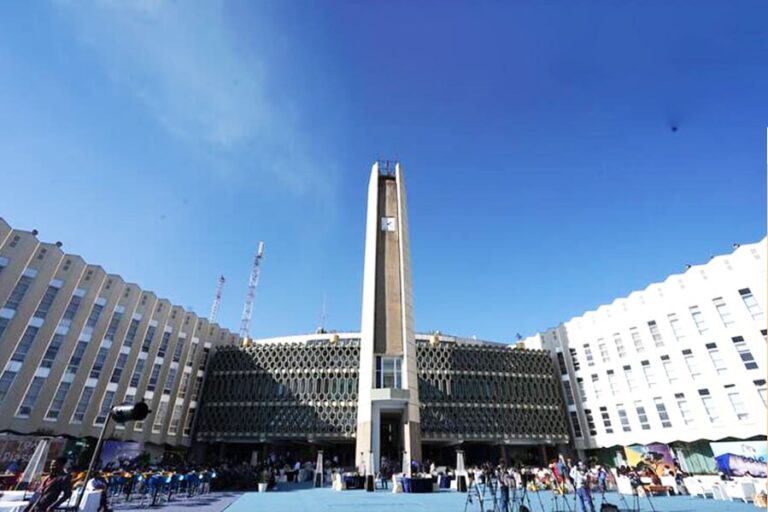The parliament has discussed the long-awaited bill to restructure the banking sector. The existing proclamation, which was issued sixteen years ago, has been significantly altered by the new law.
A few of the key provisions of the new banking legislation include permitting local financial institutions to create subsidiaries and specialized financial institutions, as well as welcoming international companies to the market.
The highly anticipated proclamation that allows foreign players to invest in the banking industry in Ethiopia is under discussion in parliament.
The draft proclamation that will amend the proclamation no 592/2008, issued in 2008 and amended in 2019, will allow banks to form subsidiaries. It has been stated that the involvement of the existing deposit-taking banks is crucial to bring the upcoming capital market, Ethiopian Securities Exchange, to life.
However, their involvement shall only be separate from their existing business. Accordingly, the National Bank of Ethiopia (NBE) is expected to issue a law that will allow commercial banks to form a subsidiary that would not have a direct link to their existing business.
The Ethiopian Capital Market Authority has also stated on different occasions that it has discussed the issue with the NBE to allow banks to have a separate company, which is now permitted under the existing law.
Based on the draft proclamation, a clause for the establishment of subsidiaries has been included. Article 66.1 of the draft proclamation states that the NBE may allow a bank to establish a subsidiary, while the details will be determined by a directive.
Similarly, the draft directive has also allowed for the formation of specialized banks. It states that the NBE may allow for the establishment of a specialized bank or conversion from/to a specialized bank.
According to the definition in the draft proclamation, a specialized bank is defined as a bank other than an investment bank that focuses on specialized banking services tailored to specific sectors of the economy or market segment, such as export/import, mortgage, agriculture, cooperative, and small and micro enterprises, and other similar sectors as determined by the NBE directive.
There is an interest in investing in the financial industry as specialized banking players in the country; however, the lack of proper laws has been stated as a barrier.
Financial institutions like Goh Betoch Bank, which was formed as a commercial bank but wants to focus on a few sectors, have requested the regulatory body to create a conducive environment that allows them to operate according to their plans.
One of Goh’s requests, as the one and only mortgage bank, is for the regulatory body to provide more opportunities for long-term financing and other issuances, including resource mobilization and partnership mechanisms, in addition to allowing the formation of a subsidiary to invest in housing and related schemes.The Goh leadership has been requesting that the government provide the regulatory framework that mortgage banking needs, as it does not already exist. They said that housing is a significant concern for the people of the country, and the government must issue an order to support the sector.
According to the bank’s former president, Mulugeta Asmare, weak legislation and an unfavorable climate for mortgage banking have negatively impacted the bank’s operations.
This was stated in the annual report released towards the end of the previous year.
The bank has made several recommendations to the relevant government agencies in an attempt to foster an environment that would allow it to process mortgages swiftly. Goh proposed a number of policy ideas, including the creation of a housing fund.
The highly anticipated proclamation includes provisions for foreign players to establish partially or fully owned foreign bank subsidiaries, open foreign bank branches, establish representative offices, or acquire shares of a bank.
It also states that foreign nationals, other than foreign banks and foreign-owned Ethiopian organizations, may acquire shares in banks. However, direct shareholding by a strategic investor in an existing or new domestic bank is limited to 40 percent of the total subscribed shares of a bank.
This is a revision of the previous proposal mentioned in the policy document.
Non-strategic foreign national investors and foreign juridical persons are limited to seven percent and ten percent of subscribed shares of a bank, respectively.
Regardless of the above provisions, the aggregate shareholding by foreign nationals and foreign-owned Ethiopian organizations in a bank is limited to 49 percent of the total subscribed shares of a bank.
The draft proclamation also adds that, “for the purpose of attracting strategic investments that would benefit the economy and/or as a way of resolving a distressed bank and preserving financial stability, the National Bank may, on an exceptional basis and subject to fulfillment of other preconditions, allow well-established, reputable, and financially sound foreign banks to partially or fully acquire existing domestic banks through acquisition.”
The government’s strong desire to join the World Trade Organization is being thwarted by its strong stance to delay the opening up of the telecom and financial sectors, which was one of the main demands made by member nations, mainly the US and Canada.
However, the administration of Prime Minister Abiy Ahmed made a daring choice to soften the previous stance and allow foreign businesses into the market to accelerate the negotiation process that has been going on for more than 20 years.
There is now one more competitor in the telecom market.




